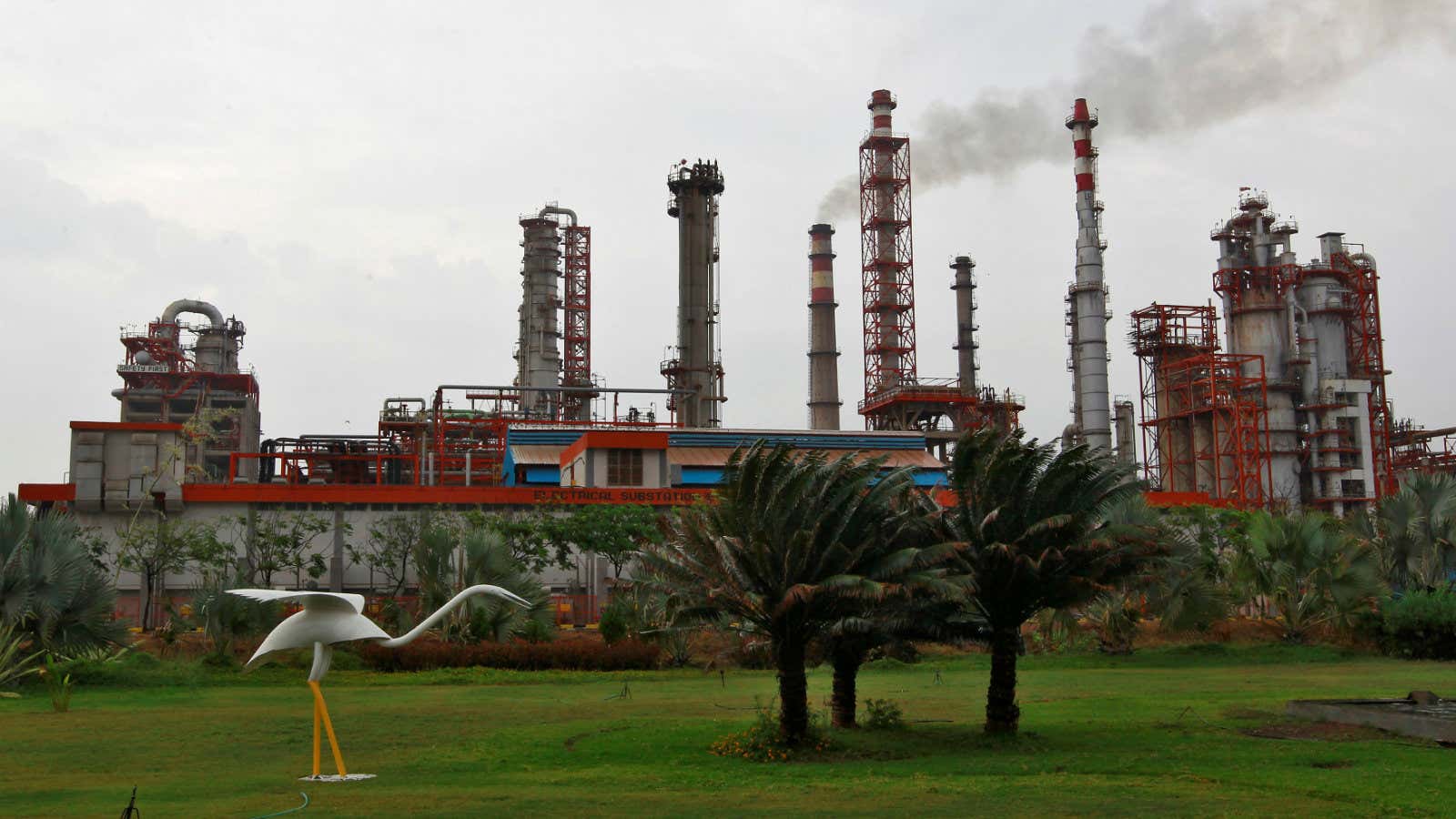India’s second-largest private oil refiner, Essar Oil, could soon come under Russian control.
Oil major Rosneft—majority-owned by the Russian government—along with Dutch commodities trading firm Trafigura and Russian fund United Capital Partners (UCP), is close to acquiring a controlling stake in the Mumbai-based firm, multiple media reports have said.
The deal could be valued between $12 billion and $13 billion (Rs80,197 crore to Rs86,882 crore), Reuters reported on Oct. 13 quoting unnamed sources. The acquisition is likely to be announced on Oct. 15 in Goa where Russian president Vladimir Putin will be present for the BRICS Summit, according to Reuters.
Rosneft will acquire a 49% stake in Essar Oil, a part of the Essar Group, and the other two investors will divide another 49% share equally, Reuters reported. Essar Oil’s current owner, the Ruia family, will continue to hold a token 2% stake, CNBC-TV18 said.
The deal, if it goes through, will be one of the largest Russian investments in India, coming at a time when the Kremlin is trying to strengthen its business bonds with the Narendra Modi government. For Rosneft, the move comes a year after it signed a preliminary deal with Essar Group to buy up to 49% in Essar’s Vadinar oil refinery.
Trafigura declined to comment on the development, while Essar Oil, Rosneft, and UCP did not reply to email queries sent by Quartz.
The opportunity
Essar Oil operates a 400,000 barrel-per-day oil refinery in the western Indian state of Gujarat and sells fuel across the country through its 2,470 filling stations. With this purchase, Rosneft and others will get a foothold in India where oil demand is booming (paywall) more than ever. In fact, oil demand in India is expected to surpass even Japan by 2025, making Asia’s third-largest economy also the world’s third-largest fuel guzzler.
The Rosneft deal could be a relief for Essar’s Ruias as some of the firm’s debt will also be acquired. About one-third of the $15 billion (Rs1 lakh crore) group debt, is that of Essar Oil. The group has been under pressure from creditors and has considered multiple options, including debt restructuring and an asset sale, to meet repayment obligations.
However, from a foreign company’s perspective, India has a tricky track record and is a tough proposition. Brazil’s Petrobras exited its oil exploration partnership with the state-run Oil and Natural Gas Corporation in 2009 after technical studies found it unviable. Four years later, in 2013, BHP Billiton, then the world’s largest miner, gave up 10 oil and gas exploration fields after they did not receive the required clearances.
